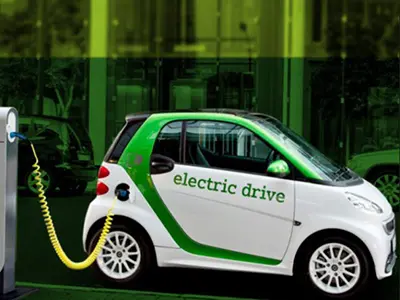
Parliament's unexpected decision to support the extension of tax breaks on electric vehicle imports for just one year, until 2027, has run into the harsh reality of legislative procedures and harsh criticism from the leadership of the relevant committee. In his latest statement, Danylo Hetmantsev, head of the parliamentary committee on tax and customs policy, categorically denied the possibility of further extending this measure, popular among certain circles, beyond next year. He directly accused automobile import lobbyists of pushing through the first reading of an amendment that, according to his calculations, deprives the state budget of 30 billion hryvnias needed to fund the army, equating this amount to additional fees from the banking sector.
According to the MP, this sweet topic, which has long lingered in the corridors of the Verkhovna Rada, will ultimately not pass further stages of the legislative process. Hetmantsev pointed to two fundamental obstacles that, in his view, leave no chance for the initiative to be implemented. Firstly, the amendment itself was introduced through the budget law, which directly contradicts two other existing legislative acts and therefore cannot be adopted for a second reading. Secondly, this amendment pertains exclusively to the first reading of the budget bill and nothing more.
His deputy on the committee, Yaroslav Zheleznyak, explained in detail the procedural complications that await the initiative in the near future. Briefly, this amendment, which was originally intended to be introduced into the Tax Code, ended up in the conclusions and proposals for the 2026 budget bill. This document is now sent to the Cabinet of Ministers, where the Ministry of Finance must approve or reject each proposed amendment, usually based on the availability or absence of the necessary financial resources to cover it. Then, by November 3, the government is obligated to return the final text of the budget bill to the Verkhovna Rada, where some of the amendments will be taken into account, while others may be amended or rejected entirely.
MP Zheleznyak outlined two possible scenarios depending on the government's position. The first scenario assumes that the Ministry of Finance will somehow manage to find between fifteen and twenty billion hryvnias to cover the budget losses from this benefit. The second, and more likely scenario, according to his personal forecast, is the government's official refusal to include this amendment in the final budget due to a lack of the necessary financial resources. According to the MP, final clarity on this issue will only come in early November, when the final version of the budget is presented. According to the current Tax Code, import and supply operations to Ukraine of vehicles equipped exclusively with electric motors, as well as new vehicles with internal combustion engines powered by compressed or liquefied methane or biogas, are exempt from value-added tax until January 1, 2026.

